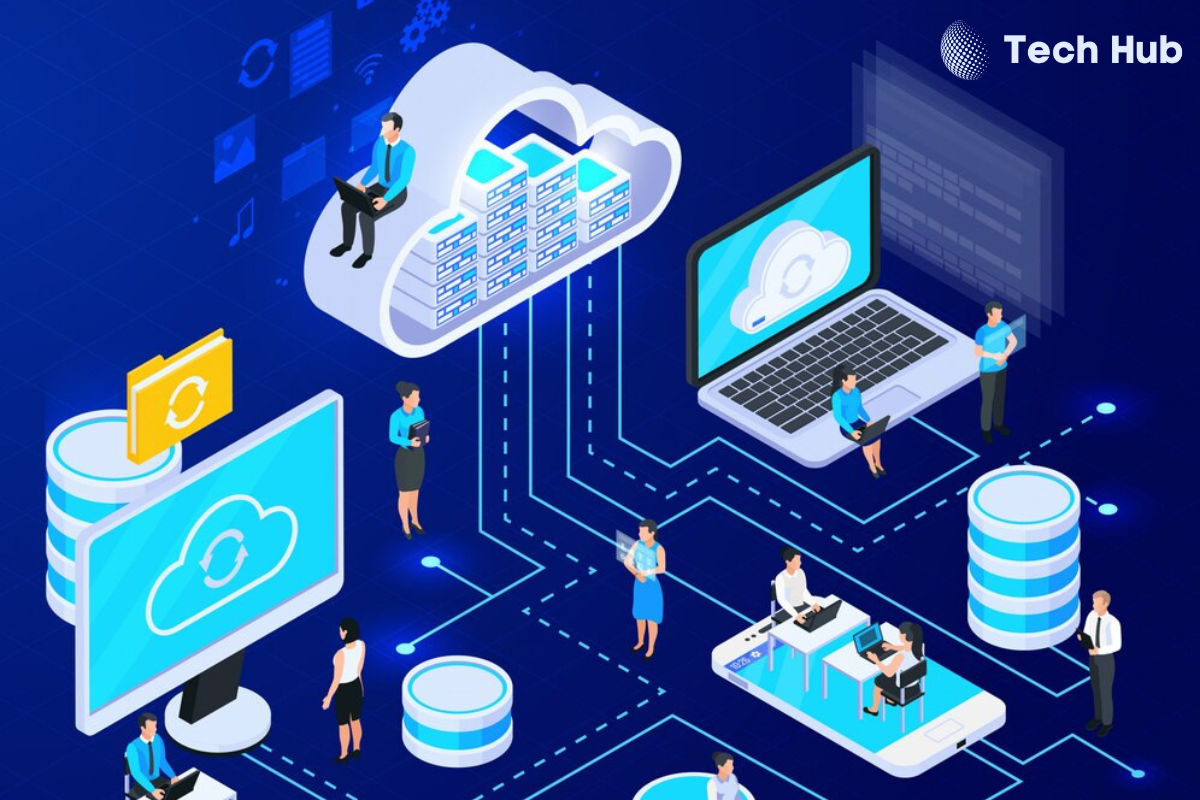Remember that frantic week when you were scrambling to upgrade your personal computer while working on an important project? It wasn’t exactly a productive environment, what with data transfers, programme incompatibilities, and the constant risk of losing important information. Now picture multiplying that experience tenfold and applying it to your whole business infrastructure. That is the reality many businesses face while navigating the often-confusing realm of cloud migration.

But take heart, just as methodically planning your PC update may save you hours of frustration, so can working with a qualified cloud migration specialist. Consider them your digital Sherpas, helping you through the dangerous peaks and valleys of migrating your data and apps to the cloud, all while ensuring your business continues to operate seamlessly.
Cloud Migration: A Journey, Not a Destination
Before we get into the specifics, let’s set a few principles. Cloud migration is the process of migrating your IT infrastructure (applications, data, and storage) from on-premises data centers to cloud-based platforms such as Amazon Web Services (AWS), Microsoft Azure, or Google Cloud Platform (GCP). It is not a one-off occurrence, but rather an intentional journey suited to your unique business requirements and objectives.
This trajectory has roots in history dating back to the early days of cloud computing. Back then, migration consisted mostly of basic file transfers. Today, however, it is a sophisticated, multi-faceted procedure that includes many services such as:
- Application Rationalisation entails evaluating and optimising your apps for cloud compatibility, identifying those that are most suited for migration and possible areas for consolidation or retirement.
- Ensuring the confidentiality of data transfer while taking into account rules, data formats, and potential downtime difficulties.
- Creating an integrated combination of on-premises and cloud environments to promote flexibility and efficiency.
- Infrastructure optimisation is the process of right-sizing your cloud resources to save expenses while increasing performance.
Riding the Cloud Wave: Latest Cloud Trends and Developments
The cloud migration environment is ever-evolving, driven by technological breakthroughs, government laws, and shifting corporate demands. Here are some major trends that shape the industry:
- Government Cloud Adoption: Government organisations are rapidly using cloud technologies to improve security, scalability, and cost savings. This transition creates new opportunities for cloud service providers and consultants.
- Multi-Cloud and Hybrid Cloud Dominance: Businesses are seeing the value of using numerous cloud platforms, frequently in tandem with their on-premises infrastructure. This requires competence in integrating and maintaining several cloud infrastructures.
- Focus on Security and Compliance: Data security and compliance remain top priorities for moving enterprises. Cloud migration specialists play an important role in ensuring regulatory compliance and adopting strong security measures.
- Automation and AI Integration: Automation technologies and AI-powered solutions help to streamline migration operations, reduce manual effort, and increase productivity.
Clearing the Cloud: Addressing Your Cloud Migration FAQs
Now, let’s answer some frequent questions that may be on your mind:
1. Is cloud migration suitable for my business?
There is no universal remedy. However, issues such as scalability requirements, security concerns, and financial limits might aid in your decision. A cloud migration specialist may examine your individual requirements and make a personalised proposal.
2. How much does cloud migration cost?
Expenses vary based on your infrastructure’s intricacy, data size, cloud platform of choice, and services necessary. Consulting with specialists can assist you in estimating expenditures and optimising your budget.
3. How long does cloud migration take?
Again, it depends on your configuration. Simple migrations may be done in weeks, whilst complicated ones may take months. A precise roadmap from your consultant will establish a specific timetable.
4. What are the risks?
Data security breaches, downtime, and compatibility concerns are potential dangers. Working with professional consultants reduces these risks through meticulous design, secure processes, and thorough testing.
Here are some key takeaways:
- Start with a clear strategy: Define your goals and objectives before venturing into migration.
- Seek expert guidance: Partnering with a cloud migration consultant ensures a smooth and efficient process.
- Prioritise security: Implement robust security measures throughout the migration and beyond.
- Communicate effectively: Keep your stakeholders informed and manage expectations throughout the journey.
- Plan for ongoing optimization: Cloud migration is an ongoing process. Continuously monitor and optimise your cloud environment for maximum efficiency.
Embrace the Cloud, Embrace Efficiency
Collaborating with a proficient cloud migration consultant provides you with experienced guidance, proven methodology, and the sense of security that comes from recognising you’re in capable hands. They will be your trusted navigators, ensuring that your cloud migration is fast, and secure, and ultimately leads to a more efficient and productive firm.
Ready to begin your cloud migration journey and want to remain ahead of the curve with exclusive insights into the newest technologies?
Subscribe to our newsletter now to receive professional insight, industry trends, and practical suggestions directly to your inbox! You will also get access to unique materials, seminars, and savings on our services.
